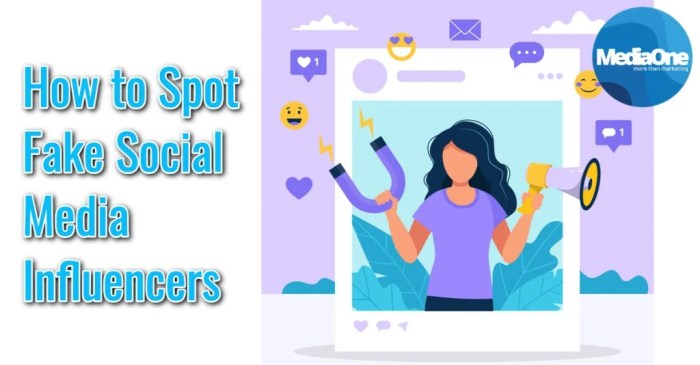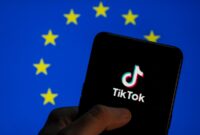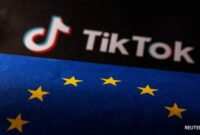Social media influencers selling counterfeit goods is a growing problem that is harming consumers and brands alike. The rise of social media has created a new platform for counterfeiters to reach a wider audience, and influencers, with their large followings and perceived credibility, have become unwitting accomplices in this illicit trade.
While many influencers are unaware of the products they are promoting, others knowingly engage in this practice for financial gain, turning a blind eye to the ethical and legal implications.
The allure of affordable luxury and the desire to emulate their favorite influencers often leads consumers to purchase counterfeit goods, unaware of the potential risks. These products often lack quality, posing health and safety hazards, and they contribute to the erosion of intellectual property rights, harming legitimate businesses.
Furthermore, the involvement of influencers in this illicit trade undermines trust in the influencer marketing industry as a whole.
The Rise of Counterfeit Goods on Social Media
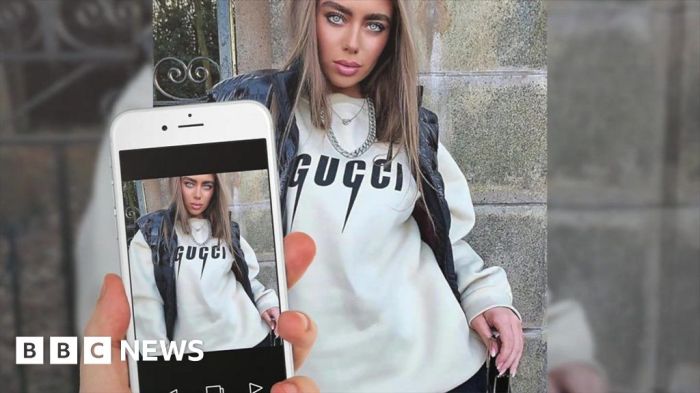
The allure of social media has become a breeding ground for the rampant sale of counterfeit goods. Influencers, with their massive followings and persuasive power, have become unwitting or intentional participants in this illicit trade, leading to a surge in the availability of fake products.
Prevalence of Counterfeit Goods
The increasing prevalence of counterfeit goods sold by social media influencers is a growing concern. The accessibility of online platforms and the ease of reaching a vast audience have made it easier than ever for individuals to engage in this practice.
Influencers, with their large and engaged followings, can easily promote counterfeit products to their audiences, often without disclosing the true nature of the goods.
Examples of Influencers Selling Fake Products
Numerous instances have surfaced where influencers have been caught selling counterfeit products. In 2020, a prominent beauty influencer was exposed for selling fake eyelashes, leading to widespread backlash and a loss of credibility. In another case, a fashion influencer was found to be promoting counterfeit clothing, which ultimately resulted in legal action against them.
Motivations for Influencers Selling Counterfeit Goods
The motivations behind influencers engaging in this practice are multifaceted. Some influencers may be driven by financial gain, as counterfeit goods are often significantly cheaper than genuine products. Others may be unaware of the authenticity of the products they are promoting, falling victim to deceptive suppliers or their own lack of due diligence.
However, there are also cases where influencers intentionally deceive their followers for personal profit, capitalizing on the trust and loyalty of their audience.
Impact on Consumers and Brands
The rise of counterfeit goods on social media has a significant impact on both consumers and brands. Influencers promoting these fake products can lead to serious consequences for unsuspecting buyers, while brand owners face a substantial threat to their reputation and revenue.
Harm to Consumers
Consumers purchasing counterfeit goods from influencers often face a range of risks. These products may be made with substandard materials, posing health and safety hazards. For instance, counterfeit cosmetics can contain harmful chemicals that can cause skin irritation or allergic reactions.
Similarly, counterfeit electronics may malfunction or overheat, leading to potential fire hazards.
Find out about how why the future wont look like a sci fi movie can deliver the best answers for your issues.
- Quality Issues:Counterfeit products are often made with inferior materials and manufacturing processes, resulting in poor quality and durability. This can lead to products malfunctioning, breaking easily, or even posing safety risks.
- Health and Safety Risks:Counterfeit goods, particularly in industries like cosmetics, pharmaceuticals, and food, can contain harmful substances that can cause allergic reactions, skin irritations, or even serious health problems.
- Financial Losses:Consumers may experience financial losses when they purchase counterfeit goods that are not as advertised or malfunction prematurely. They may also face difficulties obtaining refunds or replacements.
Damage to Brands
Counterfeit goods can severely damage the reputation and revenue of brands. When consumers purchase counterfeit products, they may perceive the brand as lacking quality control or being associated with unethical practices. This can lead to a decline in consumer trust and brand loyalty.
- Reputation Damage:Counterfeit goods can negatively impact a brand’s reputation by associating it with poor quality, unethical practices, and potentially unsafe products. This can erode consumer trust and brand loyalty.
- Revenue Loss:Counterfeit goods directly compete with genuine products, leading to revenue loss for brands. Consumers who purchase counterfeit products are less likely to buy genuine products in the future.
- Legal Issues:Brands may face legal challenges in combating counterfeit goods, including lawsuits, seizures, and investigations. This can be costly and time-consuming.
Reputation of Influencers and Brands
Influencers promoting counterfeit goods risk damaging their own reputation and losing credibility. Their followers may lose trust in their recommendations and consider them untrustworthy. Additionally, brands collaborating with influencers promoting counterfeit products may face reputational damage by association.
- Influencer Credibility:Influencers promoting counterfeit goods can lose credibility and trust among their followers, who may perceive them as dishonest or unethical. This can lead to a decline in their influence and engagement.
- Brand Association:Brands collaborating with influencers promoting counterfeit goods may face reputational damage by association. Consumers may associate the brand with unethical practices and poor quality products.
- Legal Consequences:Influencers and brands involved in promoting counterfeit goods may face legal consequences, including fines, lawsuits, and even criminal charges.
Identifying Counterfeit Goods: Social Media Influencers Selling Counterfeit Goods
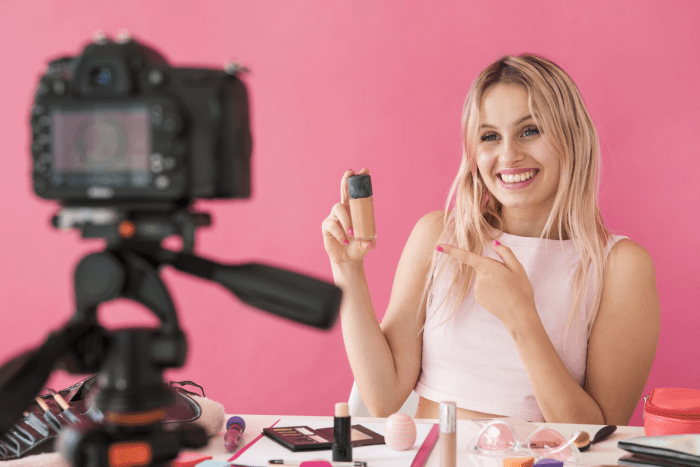
It’s crucial to be able to spot counterfeit goods, especially when shopping online. Influencers can sometimes unknowingly promote fake products, or worse, intentionally deceive their followers for profit. This guide will help you identify counterfeit goods and protect yourself from scams.
Common Signs of Counterfeit Products
Counterfeit goods often exhibit telltale signs of poor quality and lack of authenticity. Here are some key indicators to watch out for:
- Poor Quality:Counterfeit products are often made with inferior materials, resulting in noticeable flaws like loose stitching, uneven printing, or flimsy construction. For example, a counterfeit designer handbag might have misaligned seams, uneven stitching, or a cheap-looking zipper.
- Misspellings and Grammatical Errors:Counterfeiters often overlook details like spelling and grammar on labels, packaging, or product descriptions. Look for misspelled brand names, incorrect logos, or grammatical errors, which are common signs of a fake product.
- Inconsistent Packaging:Packaging is another crucial indicator. Counterfeit products may have mismatched fonts, colors, or designs compared to genuine items. Pay attention to the overall presentation and look for inconsistencies in packaging details, such as mismatched logos, font styles, or missing security features.
- Unrealistic Pricing:Be wary of deals that seem too good to be true. Counterfeiters often offer products at significantly lower prices than genuine items to lure unsuspecting customers. If the price is significantly lower than the market value, it’s likely a counterfeit product.
Verifying Authenticity
There are several ways to verify the authenticity of products before making a purchase:
- Check for Authenticity Certificates:Reputable brands often provide authenticity certificates or tags on their products. Look for these certificates and verify their legitimacy through the brand’s website or by contacting their customer service.
- Research the Seller:Investigate the seller’s reputation before making a purchase. Check online reviews, forums, and social media for feedback from other customers. Be cautious of sellers with limited information or suspicious reviews.
- Compare with Genuine Products:If possible, compare the product you’re considering with genuine items. Look for subtle differences in design, materials, or packaging that might indicate a counterfeit. You can also visit a reputable retailer or brand store to compare the product in person.
- Contact the Brand Directly:If you have doubts about a product’s authenticity, contact the brand directly for verification. They can often provide guidance on identifying genuine products and may have resources available to help you determine if a product is authentic.
Additional Tips
- Be Skeptical:If a deal seems too good to be true, it probably is. Be cautious of influencers who promote products at extremely discounted prices or with limited-time offers. It’s always a good idea to do your research and verify the authenticity of the product before making a purchase.
- Trust Your Instincts:If you have any doubts about a product’s authenticity, it’s best to err on the side of caution and avoid purchasing it. Trust your instincts and don’t feel pressured to buy something you’re not comfortable with.
Legal and Ethical Considerations
The rise of counterfeit goods on social media has serious legal and ethical implications. Influencers promoting fake products are not only breaking the law but also contributing to a harmful cycle that deceives consumers and undermines legitimate businesses. This section will delve into the legal consequences of selling counterfeit goods and the ethical concerns surrounding influencer involvement.
Legal Implications of Selling Counterfeit Goods
Selling counterfeit goods is a serious offense with severe legal consequences. The legal framework surrounding counterfeit goods varies depending on the jurisdiction, but generally, it involves trademark infringement, copyright infringement, and unfair competition.
- Trademark Infringement:Counterfeit goods often bear logos and branding that are identical or very similar to those of legitimate brands. This constitutes trademark infringement, a violation of the trademark owner’s exclusive right to use their mark.
- Copyright Infringement:Counterfeit products may also infringe on copyright laws. This occurs when counterfeiters reproduce protected designs, patterns, or artistic elements without authorization.
- Unfair Competition:The sale of counterfeit goods creates unfair competition for legitimate businesses. Counterfeiters often sell their products at lower prices, undercutting legitimate brands and impacting their sales.
Ethical Dilemmas of Influencers Promoting Counterfeit Products
Influencers promoting counterfeit products face significant ethical challenges. They are essentially endorsing illegal activities and contributing to a market that thrives on deception.
- Misleading Consumers:Influencers promoting counterfeit goods are misleading their followers by presenting fake products as authentic. They are exploiting trust and credibility to deceive consumers.
- Profiting from Deception:Influencers often receive payment or other benefits for promoting counterfeit products. This creates a direct incentive to deceive consumers for personal gain.
- Damage to Legitimate Brands:The promotion of counterfeit goods can damage the reputation and brand image of legitimate businesses. This can lead to decreased sales and consumer confidence.
Consequences for Influencers and Consumers
The sale of counterfeit goods carries significant risks for both influencers and consumers.
- Legal Action:Influencers promoting counterfeit goods can face legal action from brand owners, government agencies, or even consumers. This can result in fines, imprisonment, or even the loss of their online platforms.
- Reputational Damage:Influencers promoting counterfeit goods can suffer significant reputational damage. Their followers may lose trust in them, and their credibility may be tarnished.
- Financial Loss:Consumers purchasing counterfeit goods may experience financial loss. They may receive products that are of inferior quality, do not function properly, or are even harmful.
- Health and Safety Risks:Counterfeit products, particularly those related to health and safety, can pose serious risks. For example, counterfeit medications may contain harmful ingredients or lack the active ingredients needed for effective treatment.
Strategies for Combating Counterfeit Goods
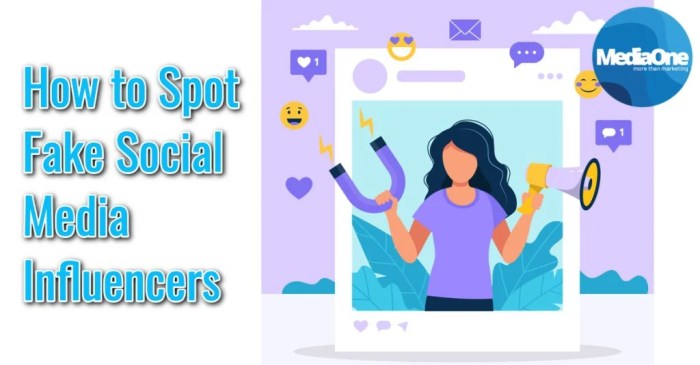
The proliferation of counterfeit goods on social media platforms presents a significant challenge for brands, consumers, and the overall integrity of online commerce. A comprehensive strategy is required to combat this issue, involving collaborative efforts from social media platforms, brands, and consumers.
Social Media Platforms’ Role in Combating Counterfeiting
Social media platforms play a crucial role in the fight against counterfeit goods. They have a responsibility to implement effective measures to prevent the sale of counterfeit products on their platforms.
- Enhanced Content Moderation:Platforms can leverage artificial intelligence (AI) and machine learning algorithms to detect and remove counterfeit listings. This includes identifying suspicious s, analyzing images, and monitoring user behavior.
- Collaboration with Brands:Platforms should work closely with brands to identify and remove counterfeit listings. This includes providing tools for brands to report counterfeit products and share information about their authentic products.
- Transparency and Accountability:Platforms should be transparent about their efforts to combat counterfeiting. This includes publishing data on the number of counterfeit listings removed and the measures taken to prevent future sales.
Brands’ Role in Protecting Intellectual Property
Brands have a vested interest in protecting their intellectual property and combating counterfeiting. They must proactively take steps to prevent the sale of counterfeit goods that damage their reputation and erode consumer trust.
- Registration and Enforcement:Brands should register their trademarks and copyrights with relevant authorities. This allows them to pursue legal action against counterfeiters and protect their intellectual property.
- Product Authentication:Brands can implement product authentication measures to help consumers distinguish between genuine and counterfeit goods. This can include unique product codes, holograms, or tamper-evident packaging.
- Consumer Education:Brands should educate consumers about the risks of buying counterfeit goods and how to identify authentic products. This can be done through social media campaigns, website information, and partnerships with consumer advocacy groups.
Consumer Reporting of Counterfeit Goods
Consumers have a crucial role to play in combating counterfeit goods. They can report instances of counterfeit goods being sold by influencers to help protect themselves and other consumers.
- Report to Social Media Platforms:Consumers should report counterfeit listings to the social media platforms where they are found. Most platforms have reporting mechanisms for suspicious activity.
- Contact Brands Directly:Consumers can contact the brand directly to report instances of counterfeit goods. Brands are often eager to address counterfeit issues and can provide information on how to identify authentic products.
- Share Information with Others:Consumers can share information about counterfeit goods with others to raise awareness and prevent others from being scammed. This can be done through social media posts, online forums, or consumer advocacy groups.
The Future of Social Media Influencer Marketing
The rise of counterfeit goods on social media poses a significant threat to the influencer marketing industry. As consumers become increasingly wary of authenticity, the credibility of influencers and the entire industry is at stake. This raises concerns about the long-term impact of counterfeit goods on influencer marketing and necessitates a proactive approach to address the issue.
Impact of Counterfeit Goods on Influencer Marketing
Counterfeit goods undermine the integrity of influencer marketing by eroding consumer trust. When consumers discover that influencers are promoting fake products, it damages their perception of the influencer’s credibility and authenticity. This can lead to a decline in engagement, brand partnerships, and overall influence.
The presence of counterfeit goods creates a negative association with influencer marketing, making it difficult for legitimate brands and influencers to establish trust and build a positive reputation.
Building Trust and Authenticity in Influencer Marketing
Platforms and brands can collaborate to combat counterfeit goods and restore consumer confidence in influencer marketing.
Platforms
- Implement robust verification systems to authenticate influencer accounts and ensure their legitimacy.
- Develop stricter policies and enforcement mechanisms to identify and remove content promoting counterfeit goods.
- Partner with brands to provide educational resources and guidelines for influencers on ethical product promotion and brand partnerships.
Brands
- Collaborate with platforms to establish clear guidelines and standards for influencer partnerships, including product authenticity verification.
- Conduct due diligence on influencers and their audience to ensure alignment with brand values and target demographics.
- Educate influencers on the legal and ethical implications of promoting counterfeit goods and encourage transparency in their partnerships.
Recommendations for Influencers, Social media influencers selling counterfeit goods
Maintaining ethical practices is crucial for influencers to build a strong reputation and sustain their influence.
- Partner with reputable brands and thoroughly research products before promoting them.
- Disclose any paid partnerships or sponsorships transparently to maintain audience trust.
- Provide accurate information about products and avoid making misleading claims.
- Engage with followers authentically and address concerns or questions about products or partnerships.

